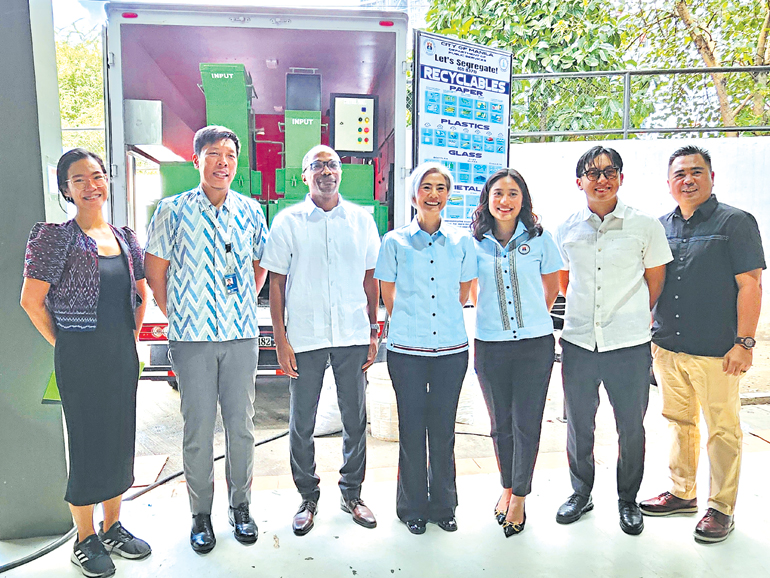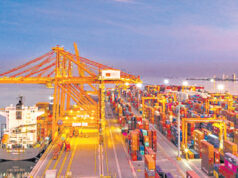Manila’s steps to progress further to sustainability

Manila, one of the oldest cities in the country, is brimming with rich history, vibrant culture, and economic activity. The city was even hailed as one of the leading destinations in 2023, according to the World Travel Awards 2023, recognizing its leadership and economic dynamism.
With continuous progress, the City of Manila is one of the frontrunners to transform the Philippines as a sustainable country.
As one of the most fast-paced and populous urban areas, the city is taking a step forward to progress by adopting a circular economy. As it is gaining momentum in the Philippines, circularity offers promising ways to cut down greenhouse gas emissions. The shift is fueled by embracing new technologies and innovative solutions, while also prompting sustainable lifestyles.
Maximizing this opportunity, Manila is seen to be well-positioned to step up their waste management game by making the most of their resources. To support local solutions, the United Nations Development Programme (UNDP) and Japan partnered together supporting local government units (LGUs) in the Philippines, and Manila is one of these LGUs. This partnership is said to enhance waste management practices and reduce waste generation.
Maria Sheilah “Honey” H. Lacuna-Pangan, mayor of the City of Manila, noted that the partnership is one step forward to the city’s transition to a circular economy, recognizing the city’s potential to drive sustainable growth and reduce environmental impact.
As part of the project, the city government recently received a material waste processing facility, equipped with plastic melters, biogas digesters, and organic waste recovery systems that help improve waste management practices within the city. This partnership marks a significant milestone of adopting a circular economy, and one step forward to sustainable growth in the city.
For Ms. Lacuna-Pangan, raising environmental awareness and getting Manila residents on board to solid waste management initiatives is a top priority.
“We are grateful to UNDP, through the ACE project, for the donation. The equipment will be brought to different communities and will take its significant role in the promotion of circular economy solutions that involves sharing, reusing, repairing, refurbishing, and recycling,” Ms. Lacuna-Pangan said.
“Our city government is continuously trying to respond to the problem of waste and its impact on the environment. One of our concrete actions is the establishment of this Materials Recovery Facility that we have right here inside the Manila Zoo. This is where we found a space appropriate to such facility; and, of course, this is a place where waste materials are accumulated every day.”
According to the UNDP, the partnership is also granting financial support and expertise to small and medium enterprises to boost their production, sustainability efforts, and expand to new and wider markets.
“By working together and training academic institutions, civil society and private enterprises, the project is helping identify innovative, grassroots circular economy solutions to scale up,” the UNDP was quoted in an article published on their website.
Further taking another step towards sustainability, the City of Manila partnered with the World Wide Fund for Nature (WWF) Philippines for the Plastic Smart Cities (PSC) project, which aims to reduce the city’s plastic pollution by 30% in 2024, and completely eliminate plastic waste leakage by 2030.
According to an article by the WWF, plastic waste is the third largest solid waste produced in the Philippines, amounting to 2,150,000 tons in 2019, and only 9% of these plastics were recycled.
Katherine Custodia, executive director of WWF-Philippines, emphasized that plastic pollution is a pressing concern as it affects both public health and the environment.
“We generate 2 million tons of plastic waste in the Philippines every year, only 9% is recycled and 35% leaks out into the open environment. As we are an archipelago of 7,640 islands, the damage caused by plastic pollution to our environment is magnified.”
Thus, Manila’s partnership to being a Plastic Smart City is a sign that the city is ready to commit to eliminating plastic pollution, Ms. Custodia noted.
“Like many around the world, Manila City believes that plastics do not belong in nature. The city has formulated and is implementing a program of auction against marine litter and has an ordinance regulating the use of single-use plastics,” she said.
A total of 1,754 households reportedly have been trained in solid waste management and 179 small waste collection vehicles have been distributed across six districts in the city. In addition, seven solution providers have expressed their support towards the city’s journey to better waste management.
The city government is actively developing efforts that address plastic pollutions, one way is by continuously cleaning up waterways, Ms. Lacuna-Pangan said during the launch of Earth Hour Philippines earlier this year.
“In our own little way, we have been helping in cleaning up the waterways in our juridical area through our own small teams without any other goal but pick up trash and clean the bay. We have dedicated teams meant to address three different waterfronts in the nation’s capital, [namely the] Baseco Beach, Roxas Boulevard, and our esteros and creeks, which lessen the chances of plastic wastes to eventually end up and float to the open sea.”
Moreover, the City of Manila was the host of this year’s Earth Hour, bringing millions of people together to play a part in restoring and reserving nature. “As the country’s capital, we’re keen on using the influence we have in engaging other cities and Filipinos to do their part in saving the environment,” Ms. Lacuna-Pangan said during the launch.
Also, part of efforts to achieve zero waste in Philippine waters is adopting policies that is centered on address plastic pollution. The City of Manila is taking a proactive approach by being the first city to implement a City Plan of Action on Marine Litter and to also localize the National Plan of Action on Marine Litter.
Along with these policies, Ms. Lacuna-Pangan shared, Manila has also taken local initiatives, including partnerships with the private sector for managing solid waste and reducing plastic pollution. Among these are programs like Kolek, Kilo Kita Para sa Walastik na Maynila; Alaskalikasan Wrapper Redemption Program; Aling Tindera: A Waste to Cash Program; and Tapon to Ipon Project. — Angela Kiara S. Brillantes



